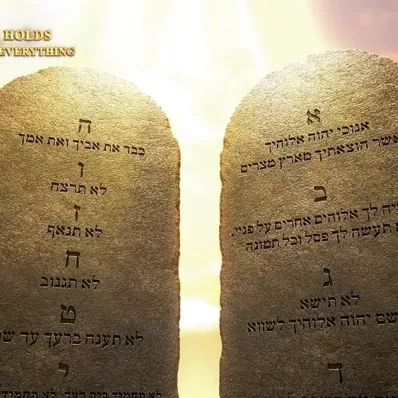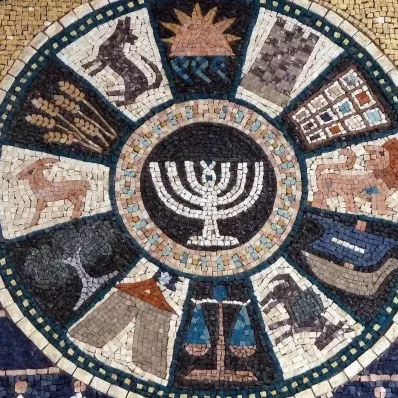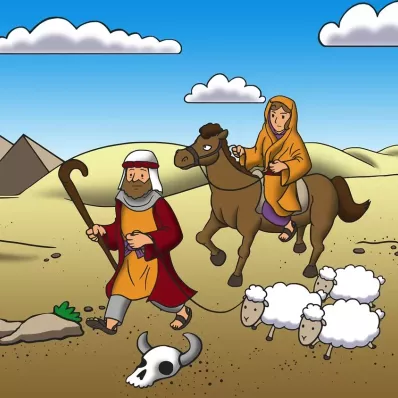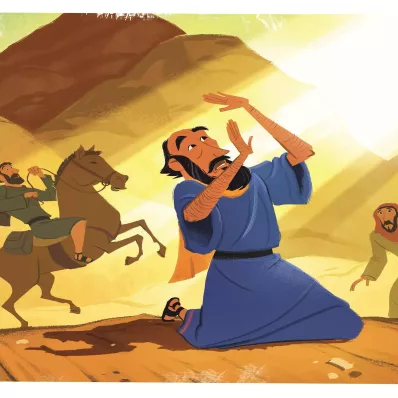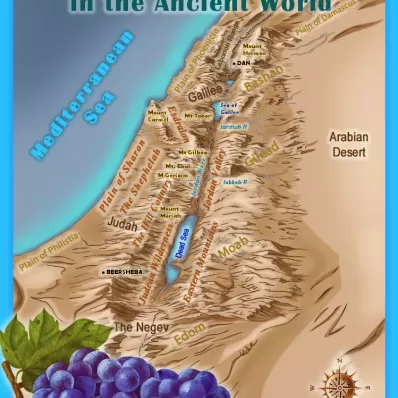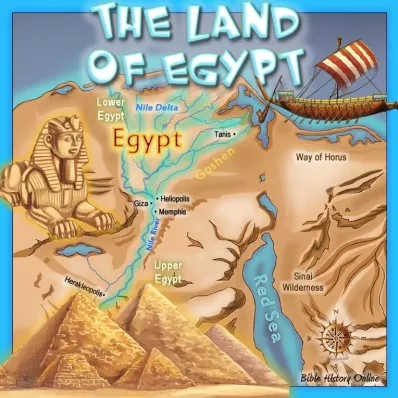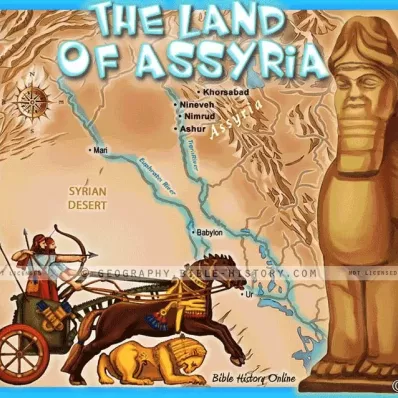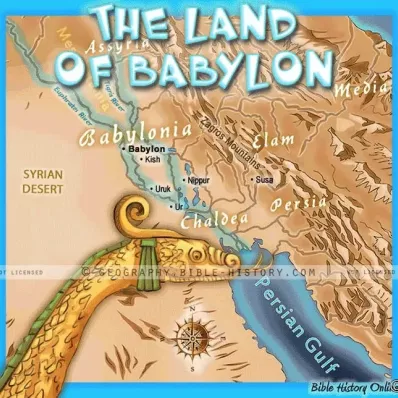Assyria
the name derived from the city Asshur on the Tigris, the
original capital of the country, was originally a colony from
Babylonia, and was ruled by viceroys from that kingdom. It was a
mountainous region lying to the north of Babylonia, extending
along the Tigris as far as to the high mountain range of
Armenia, the Gordiaean or Carduchian mountains. It was founded
in B.C. 1700 under Bel-kap-kapu, and became an independent and a
conquering power, and shook off the yoke of its Babylonian
masters. It subdued the whole of Northern Asia. The Assyrians
were Semites (Gen. 10:22), but in process of time non-Semite
tribes mingled with the inhabitants. They were a military
people, the "Romans of the East."
Of the early history of the kingdom of Assyria little is
positively known. In B.C. 1120 Tiglath-pileser I., the greatest
of the Assyrian kings, "crossed the Euphrates, defeated the
kings of the Hittites, captured the city of Carchemish, and
advanced as far as the shores of the Mediterranean." He may be
regarded as the founder of the first Assyrian empire. After this
the Assyrians gradually extended their power, subjugating the
states of Northern Syria. In the reign of Ahab, king of Israel,
Shalmaneser II. marched an army against the Syrian states, whose
allied army he encountered and vanquished at Karkar. This led to
Ahab's casting off the yoke of Damascus and allying himself with
Judah. Some years after this the Assyrian king marched an army
against Hazael, king of Damascus. He besieged and took that
city. He also brought under tribute Jehu, and the cities of Tyre
and Sidon.
About a hundred years after this (B.C. 745) the crown was
seized by a military adventurer called Pul, who assumed the name
of Tiglath-pileser III. He directed his armies into Syria, which
had by this time regained its independence, and took (B.C. 740)
Arpad, near Aleppo, after a siege of three years, and reduced
Hamath. Azariah (Uzziah) was an ally of the king of Hamath, and
thus was compelled by Tiglath-pileser to do him homage and pay a
yearly tribute.
In B.C. 738, in the reign of Menahem, king of Israel, Pul
invaded Israel, and imposed on it a heavy tribute (2 Kings
15:19). Ahaz, the king of Judah, when engaged in a war against
Israel and Syria, appealed for help to this Assyrian king by
means of a present of gold and silver (2 Kings 16:8); who
accordingly "marched against Damascus, defeated and put Rezin to
death, and besieged the city itself." Leaving a portion of his
army to continue the siege, "he advanced through the province
east of Jordan, spreading fire and sword," and became master of
Philistia, and took Samaria and Damascus. He died B.C. 727, and
was succeeded by Shalmanezer IV., who ruled till B.C. 722. He
also invaded Syria (2 Kings 17:5), but was deposed in favour of
Sargon (q.v.) the Tartan, or commander-in-chief of the army, who
took Samaria (q.v.) after a siege of three years, and so put an
end to the kingdom of Israel, carrying the people away into
captivity, B.C. 722 (2 Kings 17:1-6, 24; 18:7, 9). He also
overran the land of Judah, and took the city of Jerusalem (Isa.
10:6, 12, 22, 24, 34). Mention is next made of Sennacherib (B.C.
705), the son and successor of Sargon (2 Kings 18:13; 19:37;
Isa. 7:17, 18); and then of Esar-haddon, his son and successor,
who took Manasseh, king of Judah, captive, and kept him for some
time a prisoner at Babylon, which he alone of all the Assyrian
kings made the seat of his government (2 Kings 19:37; Isa.
37:38).
Assur-bani-pal, the son of Esarhaddon, became king, and in
Ezra 4:10 is referred to as Asnapper. From an early period
Assyria had entered on a conquering career, and having absorbed
Babylon, the kingdoms of Hamath, Damascus, and Samaria, it
conquered Phoenicia, and made Judea feudatory, and subjected
Philistia and Idumea. At length, however, its power declined. In
B.C. 727 the Babylonians threw off the rule of the Assyrians,
under the leadership of the powerful Chaldean prince
Merodach-baladan (2 Kings 20:12), who, after twelve years, was
subdued by Sargon, who now reunited the kingdom, and ruled over
a vast empire. But on his death the smouldering flames of
rebellion again burst forth, and the Babylonians and Medes
successfully asserted their independence (B.C. 625), and Assyria
fell according to the prophecies of Isaiah (10:5-19), Nahum
(3:19), and Zephaniah (3:13), and the many separate kingdoms of
which it was composed ceased to recognize the "great king" (2
Kings 18:19; Isa. 36:4). Ezekiel (31) attests (about B.C. 586)
how completely Assyria was overthrown. It ceases to be a nation.
(See NINEVEH T0002735; BABYLON T0000409.)



